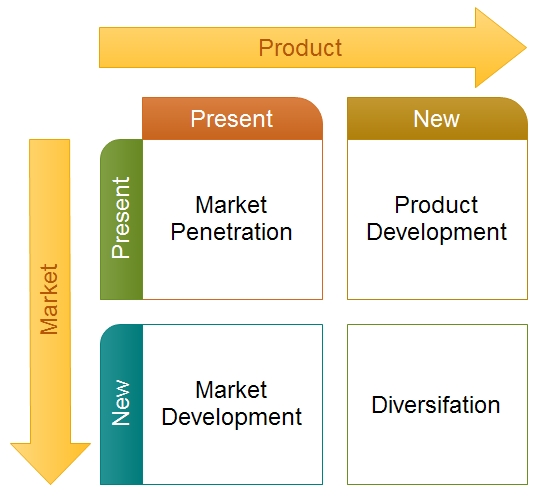
Brand positioning is the third layer of what can be termed the trinity of marketing; Segmentation, Targeting & Positioning. Market segmentation is about breaking the target market into unique segments with common needs and market targeting relates to identifying which of these unique market segments to serve. The next level which is brand positioning involves creating a distinct image about your brand in the minds of the target market.
Two key definitions succinctly capture the concept of branding and brand positioning. Arnold (1992) defines brand strategy as the process whereby an offer is positioned in the consumer’s mind to produce a perception of advantage. Therefore the concept of branding involves achieving a certain distinct position which is deemed superior in the minds of the consumer. de Chernatony (1997) also defines a brand as an identifiable product, service, person or place augmented in such a way that the buyer or user perceives relevant unique added values which match their needs most closely.
However, the measure of a brand is its equity. Brand equity refers to the positive differential advantage that a brand possesses and that is linked to the deep emotional affinity or bonds that the target audience feels about a brand.
The mad clamour for listenership for ‘morning shows’ amongst Accra’s multiple radio stations results in the situation where there’s intense competition amongst the production teams of these radio stations to grab the attention of the listeners and hopefully lock them in for the rest of the day.
In Accra, Kwame Sefa-Kayi is the undisputed “Chairman General” of the airwaves with the way he rules the airwaves with so much dexterity, multi-language skills, composure, authority, knowledge, experience and adorable personality. Many people may not have met him but still consider him a friend due to the warm nature of his voice and on-air persona.
Joy Fm traditionally has very high standards and positions itself as radio for the discerning listener. The late Komla Dumor was a personification of the high standards Joy Fm set for itself in its quest to appeal to the urban, upwardly mobile English speaking audience with a discerning mind. When Komla left to join the BBC, Joy Fm struggled to fill his shoes and gradually Kojo Oppong-Nkrumah warmed himself into the hearts of listeners and succeeded in keeping the high standards synonymous with the Joy Fm Super Morning Show. Kojo Oppong-Nkrumah left the Multimedia group and there was the challenge to fill his shoes.
Within that period, CitiFm had been knocking hard on the heels of Joy Fm to attract more of the English language segment of Accra’s radio audience. The Citi Breakfast show (CBS) team led by the brilliant Bernard Avle had a style fundamentally different from that of Joy Fm’s Super Morning Show. They adopted a more laidback, easy, witty, “say it as it is” style of broadcasting that resonated with the ordinary Ghanaian and got you hooked onto the Citi Fm brand. In 2014, Citi Breakfast Show was rightly awarded the Chartered Institute of Marketing Ghana (CIMG) radio programme the year. I will write a more detailed case study on the Citi Fm brand later under the topic of understanding brand personality.
Within that period, Joy Fm’s Super Morning Show (SMS) was undergoing a transition and a certain largely unknown Kojo Yankson had been thrust into the deep waters to fill the boots of another Kojo. He sounded polished and seemed a good fit for the SMS brand. However he had a battle on his hand. He had to battle a highly resurgent Citi Breakfast Show, meet the high expectations of the typical Joy Fm listener, step up to the polished presentation style of his predecessors, exhume confidence and exhibit profound knowledge and intelligence.
For a person brand to be successful the starting point is that it must conform to the occupation-specific behavioural expectation. In general, a brand must be able to communicate at the functional level by effectively doing what it is supposed to do. In choosing a host for the Super Morning Show many attributes may have been considered; i.e is he polished enough? Is he articulate enough? Does he have the right voice? Is he well read? Does he have the right on-air persona? Does he have some experience? Can we seriously trust him to handle the airwaves? The functional level is thus the most basic part of a successful brand. However, what can make a brand more powerful are the distinct identity it can create, relevant value-added attributes it can develop and most importantly the level of emotional connection the brand can build with its target audience.
Kojo Yankson set out to build his own brand identity and to strengthen the SMS brand. He positioned himself as the “Morning Man” and started working hard at owning that distinct position in the minds of the target audience. He expanded his social networks and became more visible online by posting daily images of the sharply dressed “Morning Man”. It also seems he targeted a more youthful audience who are most inclined to switch dials and are less brand loyal.
He then set out to build that deep seated emotional bond by posting messages titled ‘messages from the morning man” to his listeners. He wrote about motivational messages and about issues that were deeply personal to him including very emotional personal battles and challenges he had overcome. A brand is only as powerful as the emotional bond it is able to build. It’s only by building that emotional connection that the target audience can feel a sense of loyalty towards the brand.
Kojo also made the brand aspirational in nature. His motivational messages and sharp dress sense communicated a sense of aspiration and motivated the target audience to set higher standards. By encouraging them to set these standards and letting them feel it was possible he had become a friend.
Finally, he launched a book titled Messages from The Morning Man and conducted a fantastic book tour.
Therefore Kojo has leveraged on every available audience touch point (Radio medium, Sharp Social media images of the morning man, online Inspirational messages from the morning man, a book and book tour) to re-inforce the brand positioning to ensure consistency and build credibility.
Gradually, Kojo has succeeded in warming himself into the hot seat of the Super Morning Show but most importantly he has warmed himself into the hearts and minds of the target audience.
He has worked hard and proven that strong brands are built on;
Understanding your target audience and what their needs are
Understanding what your competitors do
Doing something fundamentally different from what your competitors by creating a distinct and relevant image
Understanding that communicating at the functional level is only basic and that you need to develop an added value and go the extra mile to stay visible and relevant
Leveraging on every target audience contact point to consistently re-inforce the brand positioning and ensure credibility and ownership of that position
Communicating with the target audience at the emotional level and building deep-seated emotional bonds.
From all indications the ‘Morning Man’ brand has achieved a high level of positive differential effect (brand equity), but the challenge is to maintain and sustain that relevance.
About the Writer
Nana Yaw Kesse is the Head of Marketing & Corporate Affairs at First Capital Plus Bank. He’s qualified member of the Chartered Institute of Marketing, U.K and a full member of the Chartered Institute of Marketing Ghana (CIMG). He was formerly a lecturer with the Chartered Institute of Marketing Ghana.
E:mail: yawkesse@gmail.com
Twitter handle: nykesse




